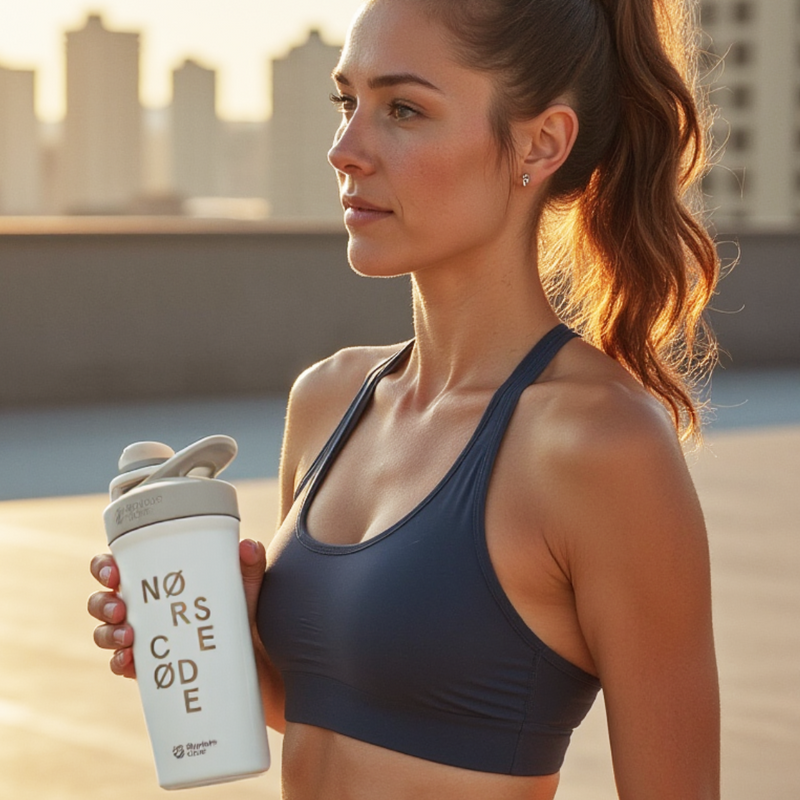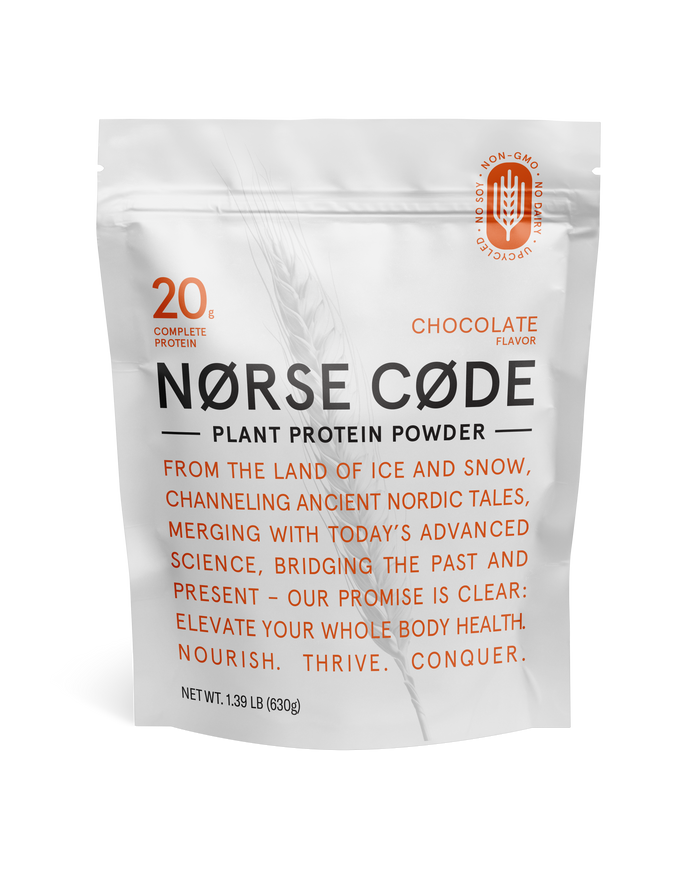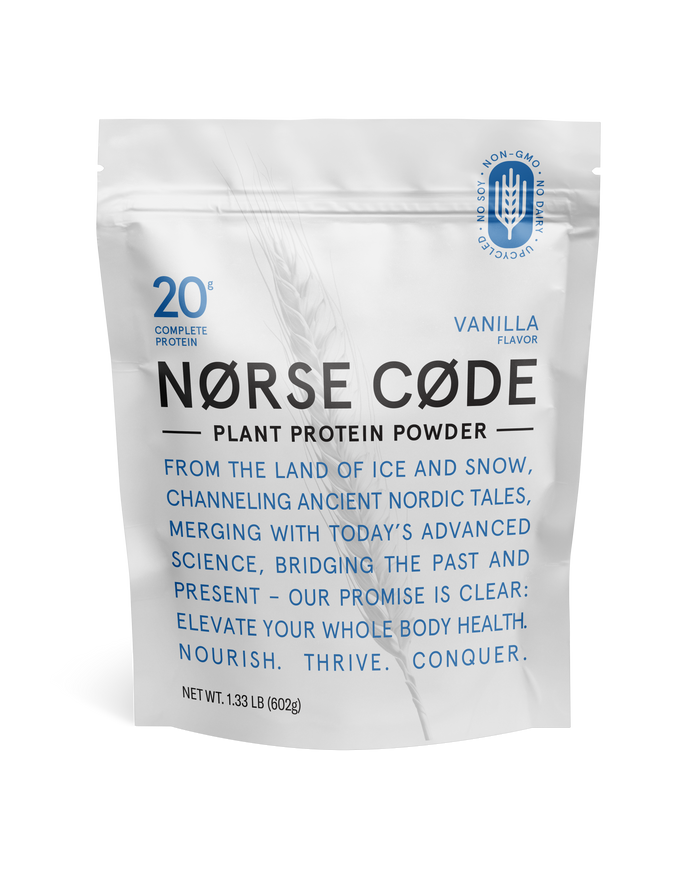
When it comes to fueling athletic performance—whether you’re a competitive runner or a weekend warrior—protein is non-negotiable. Historically, athletes have turned to whey or casein, but modern science shows that plant-based protein can power your workouts just as effectively, if not more. In this post, we’ll explore why plant-based protein is better for athletes, diving into muscle growth, recovery, and the environmental edge that appeals to today’s modern warriors.
Related Reading: New to the conversation on plant-based protein? Check our Ultimate Guide to Plant-Based Protein for a comprehensive look at amino acids, sourcing, and performance benefits.
1. The Rise of Plant-Based Nutrition in Sports
Not long ago, plant-based diets seemed unconventional for athletes. But the conversation has shifted, as more competitors—from ultrarunners to bodybuilders—publicly embrace plant-based protein.
- High-Profile Endorsements: Notable athletes, like tennis champion Novak Djokovic and ultramarathoner Scott Jurek, attribute part of their success to a plant-focused diet.
- Evolving Research: Studies continue to show that protein from sources like pea, hemp, and rice can match animal-based proteins in supporting muscle growth and exercise performance.
Explore More: For a deeper look at plant-based performance, read our article on How Plant-Based Protein Helps with Muscle Recovery.
2. Muscle Growth & Recovery: The Evidence
Complete Amino Acid Profiles
Myth-Buster: The idea that plant-based protein is incomplete. Modern research confirms that blending certain plant proteins (like pea + barley or pea + rice) delivers all the essential amino acids you need for muscle repair and hypertrophy.
- A pivotal study in the Journal of the International Society of Sports Nutrition found no significant difference between whey and rice protein for body composition changes and performance gains—when total protein intake was adequate.
- Curious about common misconceptions? We debunk them in Is Plant-Based Protein Healthy? Debunking Common Myths.
Faster, Bloat-Free Recovery
Plant-based proteins often contain antioxidants, which may help reduce inflammation post-workout. Meanwhile, athletes who struggle with dairy frequently report less bloating and quicker recovery after switching to a plant-based blend.
- Gentler on Digestion: Lactose, common in whey, can cause gas or stomach cramps. Plant-based powders skip this pitfall.
- Anti-Inflammatory Edge: Some plants are rich in phytonutrients that may ease muscle soreness.
3. Sustained Energy & Endurance
When you’re in the middle of a long run or pushing through a multi-hour match, energy steadiness matters as much as raw strength. Plant-based proteins typically digest at a stable rate, helping athletes avoid:
- Energy Spikes & Crashes: High-fiber content slows the release of carbohydrates, keeping blood sugar levels more even.
- Post-Shake Slumps: Some dairy-based shakes can leave you feeling heavy, whereas lighter plant blends sustain energy without the drag.
Want More Detail? Check out The Difference Between Whey Protein and Plant-Based Protein to see how each source affects digestion and absorption rates.
4. Environmental and Ethical Edge
Modern athletes increasingly value not just personal performance but also the impact of their nutritional choices. Here’s where plant-based protein truly shines:
- Lower Carbon Footprint: Research suggests plant-based proteins can cut greenhouse gas emissions by 4x to 7x compared to dairy-based counterparts.
- Upcycled Ingredients: At NØRSE CØDE, for example, we harness leftover barley from the brewing process, turning would-be waste into top-tier protein.
- Land & Water Savings: Growing peas or hemp generally requires far less land and water than raising livestock.
External Reference: A study in Global Environmental Change indicated that adopting more plant-based diets worldwide could cut greenhouse gas emissions and reduce land use significantly.
Deep Dive: If environmental sustainability matters to you, read The Ultimate Guide to Sustainable Protein Powders to see how your protein choice impacts the planet.
5. Gut Health and Allergens
Lactose Intolerance is widespread, and many athletes don’t realize that mild dairy sensitivities can hamper their training with gastrointestinal distress. Plant-based options bypass lactose entirely and usually avoid other top allergens like soy (unless specifically soy-based).
- Less Risk of GI Upset: When your gut is calm, you can focus on performance.
- Fiber & Prebiotics: Certain plant proteins naturally contain fiber or have added prebiotic fibers like acacia, promoting a healthier microbiome.
See Also: Why Vegan Protein Powders Are Easier to Digest for a breakdown of common allergens and how plant-based blends can help.
6. NØRSE CØDE’s Bold Approach
We built NØRSE CØDE for modern warriors who demand:
-
High-Octane Performance
- Our upcycled barley + pea blend covers essential amino acids, fueling muscle growth and quicker recovery.
-
Clean Label, Rigorous Testing
- No hidden metals, no synthetic fillers—just transparent sourcing and bold results.
-
Nordic Heritage Meets Cutting-Edge Science
- Inspired by rugged Nordic landscapes, we marry ancient resilience with modern research to create a smooth, powerful protein.
We believe athletes deserve nutrition that matches their ambition—without compromising on sustainability or gut health.
Bonus Read: Already training hard? See how we tackle muscle soreness in How Plant-Based Protein Helps with Muscle Recovery.
Conclusion
Why Plant-Based Protein Is Better for Athletes
- Muscle Gains: Complete amino acid profiles—no compromises.
- Cleaner Recovery: Fewer allergens, potential anti-inflammatory perks, and less bloating.
- Eco-Conscious: Lower carbon footprint, upcycled ingredients, and reduced land/water use.
- Steadier Energy: High fiber content supports long-lasting endurance.
Ready to Fuel Your Performance the Nordic Way?
- Try NØRSE CØDE: Experience our upcycled barley + pea formula—smooth, powerful, and designed for conquering your toughest challenges.
- Explore More Content: If you’re curious about common myths or want a thorough breakdown of plant-based benefits, check out our Is Plant-Based Protein Healthy? Debunking Common Myths or The Ultimate Guide to Plant-Based Protein.
Athletes, your next conquest is within reach—forge ahead with bold, sustainable nutrition from NØRSE CØDE.
NØRSE CØDE Chocolate Plant Protein Powder
- Regular
- $44.50
- Sale
- $44.50
- Regular
-
- Unit Price
- per
NØRSE CØDE Vanilla Plant Protein Powder
- Regular
- $44.50
- Sale
- $44.50
- Regular
-
- Unit Price
- per
NØRSE CØDE Stainless Shaker
- Regular
- $35.00
- Sale
- $35.00
- Regular
-
- Unit Price
- per




